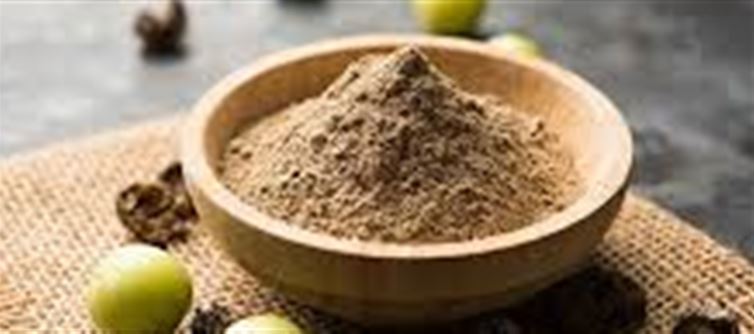
Dandruff is a common scalp condition that worsens during winter due to dryness, cold winds, and reduced moisture in the skin. acharya Balkrishna, co-founder of Patanjali Ayurveda, suggests several Ayurvedic remedies that target dandruff at its root by balancing scalp health, reducing fungal growth, and restoring moisture.
Here is an expanded and easy-to-follow guide based on his recommendations:
1. Use Neem: Nature’s Strongest Anti-Dandruff Medicine
Why neem works:
Neem has powerful antifungal and antibacterial properties that help fight the fungus Malassezia, which is responsible for dandruff.
How to use:
· Boil a handful of neem leaves in water.
· Cool, strain, and rinse your scalp with this water 2–3 times a week.
· You can also make a paste of fresh neem leaves and apply it to your scalp for 20 minutes before washing.
Benefits:
✔ Reduces flakes
✔ Controls itching
✔ Prevents scalp infections
2. Use aloe vera Gel for Deep Scalp Hydration
Why Aloe helps:
Aloe vera soothes the scalp, controls itching, and reduces inflammation. It also moisturizes the scalp to prevent dryness-related dandruff.
How to apply:
· Extract fresh aloe vera gel.
· Massage into the scalp for 10 minutes.
· Leave for 30 minutes; rinse with mild shampoo.
· Repeat 3 times a week.
3. Apply Fenugreek (Methi) Paste
Why it works:
Fenugreek seeds are rich in antimicrobial compounds and natural conditioners.
How to use:
· Soak 2 tablespoons of fenugreek overnight.
· Grind into a smooth paste.
· Apply to scalp for 30–40 minutes.
· Wash gently.
Benefits:
✔ Removes flakes
✔ Strengthens hair roots
✔ Controls excess oil
4. oil Massage With Anti-Dandruff Oils
Acharya Balkrishna recommends warm oil therapy to nourish the scalp.
Best oils for dandruff:
· Coconut oil – antimicrobial, deeply moisturizing
· Mustard oil – increases blood circulation
· Castor oil – fights fungal infections
· Tea tree oil (a few drops mixed with any base oil) – antifungal
Method:
Warm the oil slightly and massage gently into the scalp for 10–15 minutes. Leave for at least 1 hour (or overnight) and wash with mild herbal shampoo.
5. Avoid Hot Water on the Scalp
Hot water strips natural oils, making dandruff worse.
Use lukewarm or cool water for hair wash.
6. Keep Scalp Sweat-Free & Clean
Regular washing (2–3 times weekly) removes excess oil and dirt that contribute to dandruff.
7. Internal Remedies: Improve Digestion
Ayurveda says dandruff is also linked to imbalanced digestion (Agni).
Foods acharya Balkrishna recommends:
· Warm water with lemon
· Amla (Indian Gooseberry)
· Haritaki
· Trikatu (Pippali + ginger + Black Pepper) – improves digestion and reduces toxins
· Seasonal fruits & vegetables
Avoid:
· Oily and junk foods
· Too much sugar
· Excessive tea & coffee
8. Use Herbal Anti-Dandruff Pastes / Packs
A popular Ayurvedic scalp pack:
Ingredients:
· neem powder – 1 tsp
· Amla powder – 1 tsp
· Shikakai powder – 1 tsp
· aloe vera gel – 2 tbsp
Make a paste with water and apply for 20–30 minutes before shampooing.
When to See a Doctor?
Seek medical help if:
· Dandruff persists for more than 4–6 weeks
· You have redness, swelling, or bleeding
· Hair fall increases rapidly
· Itching is severe
Summary: Quick 7-Step Anti-Dandruff Routine
1. Rinse scalp with neem water.
2. Apply aloe vera gel 2–3 times a week.
3. Use fenugreek paste once a week.
4. Massage scalp with warm coconut/mustard oil.
5. Avoid hot showers.
6. Use herbal scalp packs.
7. Improve digestion with healthy foods.
Disclaimer:
The views and opinions expressed in this article are those of the author and do not necessarily reflect the official policy or position of any agency, organization, employer, or company. All information provided is for general informational purposes only. While every effort has been made to ensure accuracy, we make no representations or warranties of any kind, express or implied, about the completeness, reliability, or suitability of the information contained herein. Readers are advised to verify facts and seek professional advice where necessary. Any reliance placed on such information is strictly at the reader’s own risk.




 click and follow Indiaherald WhatsApp channel
click and follow Indiaherald WhatsApp channel